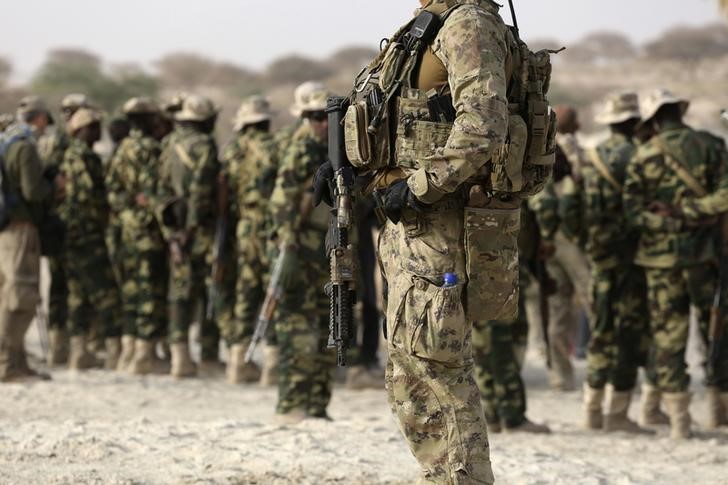By Tom Westbrook
DARWIN, April 18 (Reuters) - U.S. Marines began arriving in Australia's tropical north on Tuesday for a six-month deployment during which they will conduct exercises with Australian and visiting Chinese forces.
The 25-year annual deployment programme started by former U.S. President Barack Obama in 2011 is part of the U.S. "pivot" to Asia at a time of increased assertiveness by China.
"I think that the commitment that we've taken to put a task force here with a conversation to get larger over the years says that we do think this is an important region," said Marines' commander Lieutenant Colonel Brian Middleton after the first troops arrived in Darwin in the Northern Territory.
"Being close to Southeast Asia and the Indian Ocean, the Indo Pacific position has always been important."
Middleton said the marines would conduct an "important exercise alongside our Chinese partners" and Australia.
The strength of this year's deployment at 1,250 troops lags well behind the initial plan for the deployment to reach 2,500 Marines this year, but it will see the largest U.S. aircraft contingent to Australia in peacetime history.
Middleton said the 13 aircraft, including tilt-rotor Ospreys, Super Cobra helicopters and Huey helicopters, triple the four aircraft in past deployments, was a "tangible kind of sign of our commitment to the region and to this partnership".
He said the decision to send the aircraft pre-dated the recent escalation in tensions over North Korea.
"Regardless, I think it is just a good move any time we can strengthen the long standing partnership and alliance between our two countries. We stand ready to fight and win the night always."
U.S. President Donald Trump has ordered the USS Carl Vinson carrier strike group to sail to near the Korean peninsula as a show of force aimed at deterring North Korea from conducting more missiles tests. Pyongyang launched a failed missile test on Sunday and has warned Washington against taking military action against North Korea. Australia-US-China military exercises are also aimed at Australia charting a course between its most important security ally the United States and its biggest trading partner China. has drawn rebukes from both superpowers as it tries to strike a balanced stance on the disputed South China Sea, with China criticising Australian freedom-of-navigation flights in the area and a senior U.S. soldier calling on Australia to do more there.
